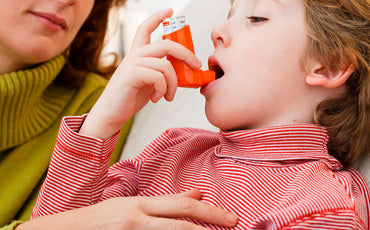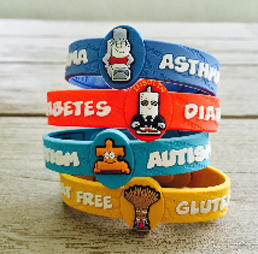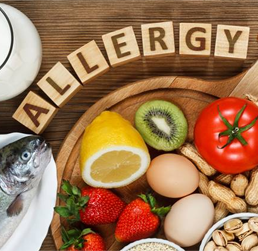
Seven things to ease the pollen allergy pain
Year after year, we hear the media say THIS is the “worst year ever” for seasonal allergy sufferers, and year after year, so many of us roll our eyes at the media’s tendency to over-dramatize. However, this year I am not rolling my eyes. In fact, I’m rubbing them incessantly due to itching. If you’ve heard the media say THIS year is the worst year ever, you can believe them. It is truly the worst pollen season we’ve had as long as I can remember.
While some of us deal with it just a couple to few months of the year, others struggle for several months, but none of us go through it alone. As the number one allergy trigger out there, those tiny, yellowish, powdery particles we call pollen do a lot of damage, affecting millions around the world.
If you’ve had an allergy test, you can pretty well predict when your itchy/sneezy time will come. If your allergen is tree pollen, you’ve likely suffered the past month or two and may be suffering now. The good news for you is that unless you’re allergic to grass, you’ll soon be in the clear. Grass pollen is about to take over and may plague its allergic people until August when ragweed and weeds – the biggest problem maker as the #1 pollen producer – will take the reins. (Notice no mention of beautiful, colorful and fragrant flowers; it’s all been in our imagination!)
While we see pollen as an evil being, it really can’t help the problems it makes. It’s simply doing its job to create new plants with the help of the wind, which picks it up and releases it into the air. The goal is for pollen to land on and fertilize other plants, but much to everyone’s dismay, it usually ends up where it’s not wanted (e.g., our throats and noses).
It seems pretty hopeless to avoid, right? Well, honestly it is, but there are some steps we can take to mitigate the issue. As a matter of fact, here are seven things you can do to help your child be less itchy and sneezy during their pollen season:
- Leave pollen outdoors. No matter if in the house or the car, keep your windows up and doors closed to keep the pollen out. Avoid window or attic fans, and use your air conditioning at home (and in the car) to keep cool.
- Play indoors. It may be hard to keep kids with a severe pollen allergy in the house, but it’s extremely important during high pollen times (especially in the early morning hours) and on dry, windy days. Help them to burn energy by taking them to an indoor gym for soccer or an indoor pool for swimming, for example.
- Wear shades. Have your children wear sunglasses while outdoors. Even though they’ll be working to keep pollen out of their eyes, they’ll actually just look like they’re playing it cool!
- Clean it off when coming inside. If you or your child has been outside with pollen, it’s a good idea to take your clothes off when coming indoors. It’s also a good idea to take a bath and wash hair, too, just to be safe.
- Discourage outdoor chores. It sounds so odd saying that, but kids with a severe pollen allergy should not do yardwork, like mowing the yard or raking leaves, during the times their allergen is present. In fact, they shouldn’t be outside when anyone else is doing it either.
- Safeguard your house. Use a HEPA filter in your home, and especially in your child’s bedroom, and change them out as recommended to help keep the air clean. Also, high-pollen times are not the time to be energy efficient, so dry clothes and linens in the dryer and NOT outside.
- Hit the beach! It’s impossible to avoid pollen; it can travel anywhere. However, if possible, plan a trip to the beach when pollen counts are their highest at home. That’s because pollen is its lowest at the beach. A true win-win!
For kids with asthma, this checklist can come in extremely handy since breathing in pollen can trigger asthma symptoms like wheezing and shortness of breath. And with pollen in the air three seasons out of the year, it’s no doubt that asthma and allergies can be hard to control, but hopefully this can help make your kid’s “time” a bit more manageable.

Pictured left to right is AllerMates featured physician, Dr. Leonard Silverstein, with Ben Shamus, son of AllerMates founder, Iris Shamus. Ben, who has severe allergies and asthma, is a regular patient at the allergist during pollen season, since the age of two.






